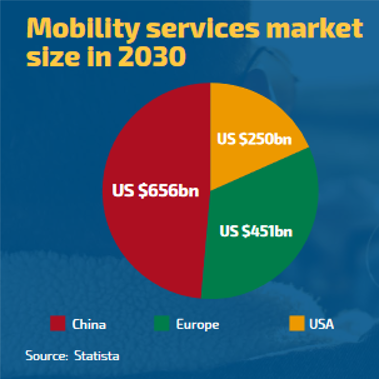China Future Mobility
Key Takeaways China Future Mobility
- There is a pathway for the existing extended auto industry to lead the transition to the future of personal mobility, but it will require fundamental and expeditious business-model change.
- Potential effects of the shift to future mobility ecosystem are spreading across all sectors of the Chinese economy.
- The nation once known more for technological imitation than innovation is now an international leader in electric vehicles and other next-generation mobility products.
- In the 21st century, China is emerging as a leader in many new technologies, especially those related to mobility.
- China is not only the biggest producer of electric vehicles (EVs) by far, but it is also a leader in lithium-ion battery technology that powers EVs as well as smartphones and other mobile devices.
- Space travel and hyperloop are among Future Mobility sectors in development.
- In a study, 33% of respondents from China said they were “very likely” to switch from public transport to autonomous vehicles when they became available.
- China has vowed to build a comprehensive, multidimensional and interconnected transport system, called Mobility as a Service, or MaaS, covering the entire country.

Batteries are the power storage of the future as the world moves relentlessly toward the electrification of transportation, and while China controls 60% of the world’s production of lithium-ion batteries and nearly half of the world’s global lithium production, it is also hard at work trying to advance them and developing substitutes that could be cheaper and less combustible.
Chinese drone producers are well ahead of competitors in the development of autonomous systems for personal mobility, according to a 2018 World Economic Forum report.
China also announced its intention to build a national innovation center for high-speed rail in Qingdao. Autonomous versions of high-speed rail have also been in testing for the last two years.
In a 2018 survey on mobility conducted by Oliver Wyman, 33% of respondents from China said they were “very likely” to switch from public transport to autonomous vehicles when they became available.



